Dimethoxymethane
Synonym(s):Dimethoxymethane;Formal, Methylal, Dimethoxymethane;Formaldehyde dimethyl acetal;Methylal
- CAS NO.:109-87-5
- Empirical Formula: C3H8O2
- Molecular Weight: 76.09
- MDL number: MFCD00008495
- EINECS: 203-714-2
- SAFETY DATA SHEET (SDS)
- Update Date: 2025-12-17 09:50:40

What is Dimethoxymethane?
Description
Methylal is a colorless liquid with a pungent odor. Molecular weight= 76.11; Specific gravity (H2O:1)= 0.86;Boiling point=43.9℃; Freezing/Melting point=105℃; Vapor pressure 330 mmHg at 20℃; Flash point=32℃; Autoignition temperature=237℃. Explosive limits: LEL= 2.2%; UEL= 13.8%. Hazard Identification (based on NFPA-704 M Rating System): Health 2, Flammability 3, Reactivity 2. Soluble in water; solubility= 33%.
Chemical properties
Dimethoxymethane, also called methylal, is a colorless flammable liquid with a low boiling point, low viscosity and excellent dissolving power. It is stable in the presence of alkalis and mild acids, and to high temperatures and pressures. It differs from other ethers in that it forms only minute omounts of peroxides. It will dissolve such synthetic resins as nitrocellulose, cellulose acetate and propionate, ethyl cellulose, vinyl, "Epons" and polystyrene, and also many of the natural gums and waxes. Methylal as a latent solvent is activated by the addition of esters, ketones or alcohols. Its evaporation rate, twice that of acetone, places this ether in a class with such solvents as acetone, methyl acetate and ethyl acetate in resin formulations.
Physical properties
Dimethoxymethane appears as a clear colorless liquid with a pungent, chloroform-like odor. Flash point 0°F. Boiling point 42.3°C. Density 0.864 g / cm3 at 68°F (20°C). Vapors heavier than air.
The Uses of Dimethoxymethane
Dimethoxymethane (Methylal) is a valuable extraction solvent for pharmaceutical products and a stable, inexpensive solvent for Grignard reactions. Methylal is stable under alkaline and mild acidic conditions. Its dissolving ability is stronger than ether, acetone, and methanol and azeotrope can dissolve nitrocellulose with high nitrogen content. Dimethoxymethane is mainly used in the production of anion-exchange resins, and also as solvents and special fuels.
Definition
ChEBI: Dimethoxymethane is an acetal that is the dimethyl acetal derivative of formaldehyde. It is an acetal and a diether. It derives from a methanediol.
Preparation
Dimethoxymethane synthesis is based on the liquid-phase acetalization reaction of methanol and formaldehyde. It can be manufactured by oxidation of methanol or by the reaction of formaldehyde with methanol. In aqueous acid, it is hydrolyzed back to formaldehyde and methanol.
Reaction mechanisms and catalysis in the one-step synthesis of methylal via methanol oxidation
Novel Porous Iron Molybdate Catalysts for Synthesis of Dimethoxymethane from Methanol: Metal Organic Frameworks as Precursors
What are the applications of Application
Dimethoxymethane is a versatile chemical with applications in many industries such as paints, perfume, resins, pharmacy, paint strippers, protective coatings, and fuel additives.
It may be used in the synthesis of methoxymethyl (MOM) ethers.
It may also be used as an external cross-linker to form microporous polymers.
Reaction solvent or an extraction solvent manufacturing pharmaceuticals, aerosols, paints, varnishes and cleanings.
Production of ion exchange resins, polyacetal as a chain length regulator.
Glue Formulations fragrances and pesticides.
Fuel Additive for smoke reduction.
Blowing agent for PU Foams.
General Description
Dimethoxymethane (DMM, methylal) is a biodegradable dimethyl acetal. It can be synthesized by acid catalyzed condensation of formaldehyde with methanol. It is amphiphilic in nature with low viscosity, surface tension and boiling point. It is a flammable, highly volatile solvent with good dissolving power. DMM is considered as a potential alternative fuel and fuel additive due to its high oxygen content and its ability to enhance the combustion characteristics of diesel and petrol. Its thermal diffusivity has been determined by photoacoustic method. Analysis of the molecular structure of DMM by electron diffraction technique shows that it has C2 symmetry with a gauche-gauche conformation.
Air & Water Reactions
Highly flammable. Water soluble.
Reactivity Profile
Dimethoxymethane, an acetal, is incompatible with strong oxidizing agents and acids . Breaks down to formaldehyde and methanol in acidic solutions. A very dangerous fire hazard when exposed to heat, flame or oxidizing agents. May ignite or explode if heated with oxygen [Lewis].
Health Hazard
VAPOR: Irritating to eyes, nose and throat. Harmful if inhaled. LIQUID: Irritating to skin and eyes. Harmful if swallowed.
Fire Hazard
FLAMMABLE. A very dangerous fire hazard when exposed to heat, flame, or oxidzers. Moderately explosive when exposed to heat or flame. May ignite or explode when heated with oxygen. To fight fire, use foam, CO2, dry chemical. When heated to decomposition it emits acrid smoke and irritating fumes.
Flammability and Explosibility
Highly flammable
Safety Profile
Moderately toxic by subcutaneous route. Mildly toxic by ingestion and inhalation. Can cause injury to lungs, liver, kidneys, and the heart. A narcotic and anesthetic in high concentrations.
Dimethoxymethane is considered to be of low hazard potential to humans given that no adverse effects or organ-specific toxicity were observed at inhalation exposures as high as 10 068 ppm (31 334 mg/m3) in rats, and considering the available information indicating a lack of genotoxic, mutagenic or developmental effects. As dimethoxymethane is considered to be of low hazard potential, the risk to human health is considered to be low.
Potential Exposure
Vapors may form explosive mixture with air. Methylal may be able to form unstable and explosive peroxides. Heating may cause explosion. Incompatible with oxidizers (chlorates, nitrates, peroxides, permanganates, perchlorates, chlorine, bromine, fluorine, etc.); contact may cause fires or explosions. Keep away from alkaline materials, strong bases, strong acids, oxoacids, epoxides. Hydrolyzes readily in presence of acids to generate aldehydes.
First aid
If this chemical gets into the eyes, remove any contact lenses at once and irrigate immediately for at least 15 min, occasionally lifting upper and lower lids. Seek medical attention immediately. If this chemical contacts the skin, remove contaminated clothing and wash immediately with soap and water. Seek medical attention immediately. If this chemical has been inhaled, remove from exposure, begin rescue breathing (using universal precautions, including resuscitation mask) if breathing has stopped and CPR if heart action has stopped. Transfer promptly to a medical facility. When this chemical has been swallowed, get medical attention. Give large quantities of water and induce vomiting. Do not make an unconscious person vomit
Source
Methylal is a by-product in the synthesis of trioxane, an intermediate in the manufacture of polyacetal plastics (Albert et al., 2001).
Storage
Color Code—Red: Flammability Hazard: Store in a flammable liquid storage area or approved cabinet away from ignition sources and corrosive and reactive materials. Prior to working with this chemical you should be trained on its proper handling and storage. Before entering confined space where this chemical may be present, check to make sure that an explosive concentration does not exist. Methylal must be stored to avoid contact with strong oxidizers, such as chlorine, chlorine dioxide, bromine, nitrates and permanganates, since violent reactions occur. Store in tightly closed containers in a cool, well-ventilated area away from heat. Sources of ignition, such as smoking and open flames, are prohibited where methylal is handled, used, or stored. Metal containers involving the transfer of 5 gallons or more of methylal should be grounded and bonded. Drums must be equipped with self-closing valves, pressure vacuum bungs, and flame arresters. Use only nonsparking tools and equipment, especially when opening and closing containers of methylal. Wherever methylal is used, handled, manufactured, or stored, use explosion-proof electrical equipment and fittings.
Shipping
UN1234 Methylal, Hazard Class: 3; Labels: 3-Flammable liquid
Purification Methods
It is a volatile flammable liquid which is soluble in three parts of H2O, and is readily hydrolysed by acids. Purify it by shaking with an equal volume of 20% aqueous NaOH, stand for 20minutes, dry over fused CaCl2, filter and fractionally distil it through an efficient column. Store it over molecular sieves. [Buchler et al. Org Synth Coll Vol III 469 1955, Rambaud & Besserre Bull Soc Chim Fr 45 1955, IR: Wilmshurst Can J Chem 36 285 1958, Beilstein 1 IV 3026.]
Incompatibilities
Forms explosive mixture with air. Methylal may be able to form unstable and explosive peroxides. Heating may cause explosion. Strong reaction with strong oxidizers, acids, causing fire and explosion hazard. Hydrolyzes readily in presence of acids to generate aldehydes.
Waste Disposal
Concentrated waste containing no peroxides: discharge liquid at a controlled rate near a pilot flame. Concentrated waste containing peroxides: perforation of containers of the waste from a safe distance followed by open burning.
Properties of Dimethoxymethane
| Melting point: | -105 °C |
| Boiling point: | 41-43 °C |
| Density | 0.860 g/mL at 20 °C(lit.) |
| vapor density | 2.6 (vs air) |
| vapor pressure | 6.38 psi ( 20 °C) |
| refractive index | n |
| Flash point: | -18 °C |
| storage temp. | Store at <= 20°C. |
| solubility | 32.3 g/100 mL (16°C) |
| form | Liquid |
| pka | 3.1[at 20 ℃] |
| color | Clear colorless |
| Odor | Mild, ethereal; chloroform-like. |
| PH | pH (12.5vol % , 25℃) : 4.5~6.6 |
| explosive limit | 1.6-17.6%(V) |
| Water Solubility | 32.3 g/100 mL (16 ºC) |
| Sensitive | Moisture Sensitive |
| Merck | 14,6012 |
| BRN | 1697025 |
| Henry's Law Constant | (x 10-4 atm?m3/mol):
1.73 at 25 °C (Hine and Mookerjee, 1975) |
| Exposure limits | NIOSH REL: TWA 1,000 ppm (3,100 mg/m3), IDLH 2,200 ppm; OSHA PEL:
TWA 1,000 ppm; ACGIH TLV: TWA 1,000 ppm (adopted). |
| Dielectric constant | 2.7(20℃) |
| Stability: | Stable. Extremely flammable. Readily forms explosive mixtures with air. Note low flash point and wide explosive limits. Incompatible with strong oxidizing agents, strong acids. May form explosive peroxides upon exposure to air. |
| CAS DataBase Reference | 109-87-5(CAS DataBase Reference) |
| NIST Chemistry Reference | Methane, dimethoxy-(109-87-5) |
| EPA Substance Registry System | Dimethoxymethane (109-87-5) |
Safety information for Dimethoxymethane
| Signal word | Danger |
| Pictogram(s) |
 Flame Flammables GHS02 |
| GHS Hazard Statements |
H225:Flammable liquids |
| Precautionary Statement Codes |
P210:Keep away from heat/sparks/open flames/hot surfaces. — No smoking. P233:Keep container tightly closed. P240:Ground/bond container and receiving equipment. P241:Use explosion-proof electrical/ventilating/lighting/…/equipment. P242:Use only non-sparking tools. P243:Take precautionary measures against static discharge. |
Computed Descriptors for Dimethoxymethane
Dimethoxymethane manufacturer
RAIGAD CHEMICALS PVT LTD
New Products
4,4-Difluoropiperidine hydrochloride tert-butyl 9-methoxy-3-azaspiro[5.5]undecane-3-carboxylate Indole Methyl Resin N-Isopropylurea N,N-Dicyclohexylcarbodiimide(DCC) MELDRUMS ACID 5-METHYLISOXAZOLE-4-CARBOXYLIC ACID Magnessium Bis glycinate Zinc ascorbate 1-bromo-2-butyne 2-acetamidophenol 9(10H)-anthracenone Erythrosin B, 4-Piperidinopiperidine 2-((4-morpholinophenylamino) (methylthio) methylene) malononitrile 2,4-dihydroxybenzaldehyde 3-(4-morpholinophenylamino)-5-amino-1H-pyrazole-4-carbonitrile Methyl 2-methylquinoline-6-carboxylate 2,6-dichloro-4-nitropyridine 4-Bromo-2-chlorobenzonitrile 2-(benzylamino)acetic acid hydrochloride 4-(tert-Butoxycarbonylamino)but- 2-ynoic acid 3,4-dihydro-2H-benzo[b][1,4]dioxepine 1-Phenyl-1-cycloprppanecarboxylicacidRelated products of tetrahydrofuran
![Carbamic acid, N-[1,1'-biphenyl]-2-yl-, 1-methyl-4-piperidinyl ester](https://img.chemicalbook.in/CAS/20200611/GIF/1289178-26-2.gif)

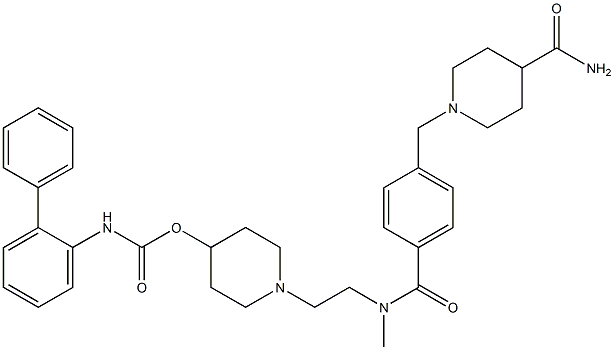
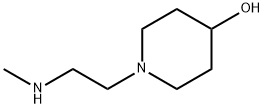
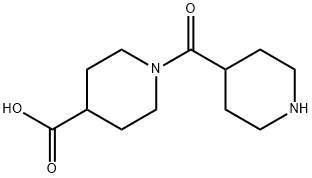
![1-(2-(methylamino)ethyl)piperidin-4-yl [1,1'-biphenyl]-2-ylcarbamate](https://img.chemicalbook.in/CAS/20180703/GIF/743460-48-2.gif)
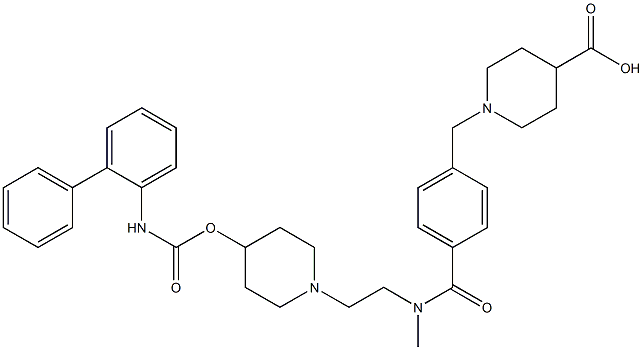
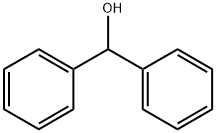
You may like
-
 109-87-5 Formaldehyde dimethyl acetal 98%View Details
109-87-5 Formaldehyde dimethyl acetal 98%View Details
109-87-5 -
 Methylal CASView Details
Methylal CASView Details -
 Methylal CAS 109-87-5View Details
Methylal CAS 109-87-5View Details
109-87-5 -
 Dimethoxy methane CAS 109-87-5View Details
Dimethoxy methane CAS 109-87-5View Details
109-87-5 -
 Dimethoxy methane+ CAS 109-87-5View Details
Dimethoxy methane+ CAS 109-87-5View Details
109-87-5 -
 Dimethoxymethane 99% CAS 109-87-5View Details
Dimethoxymethane 99% CAS 109-87-5View Details
109-87-5 -
 Dimethoxymethane CAS: 109-87-5View Details
Dimethoxymethane CAS: 109-87-5View Details
109-87-5 -
 Liquid Di Methoxy Methane / Methylal - DMM / CAS No.109-87-5View Details
Liquid Di Methoxy Methane / Methylal - DMM / CAS No.109-87-5View Details
109-87-5
